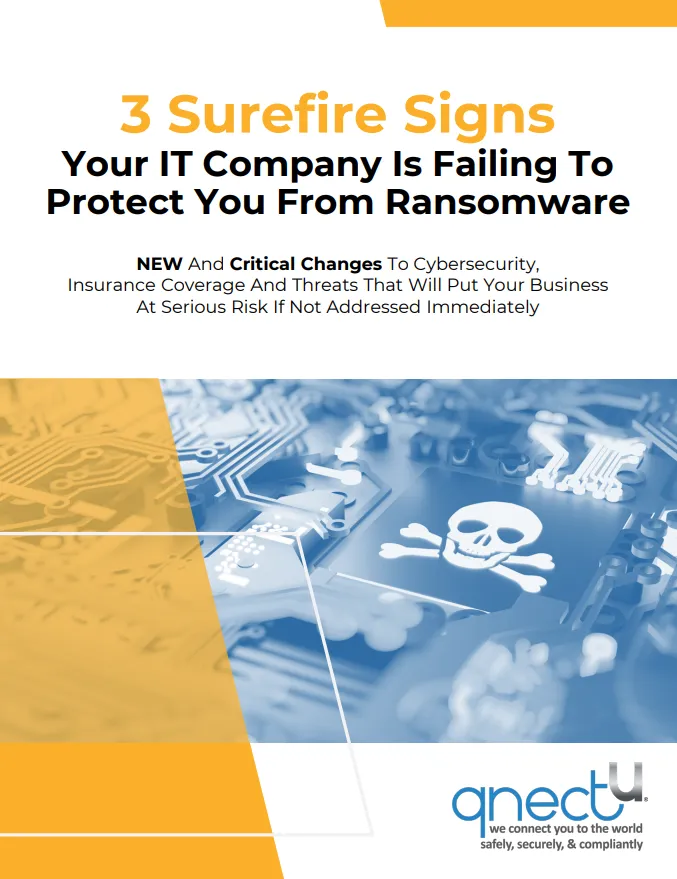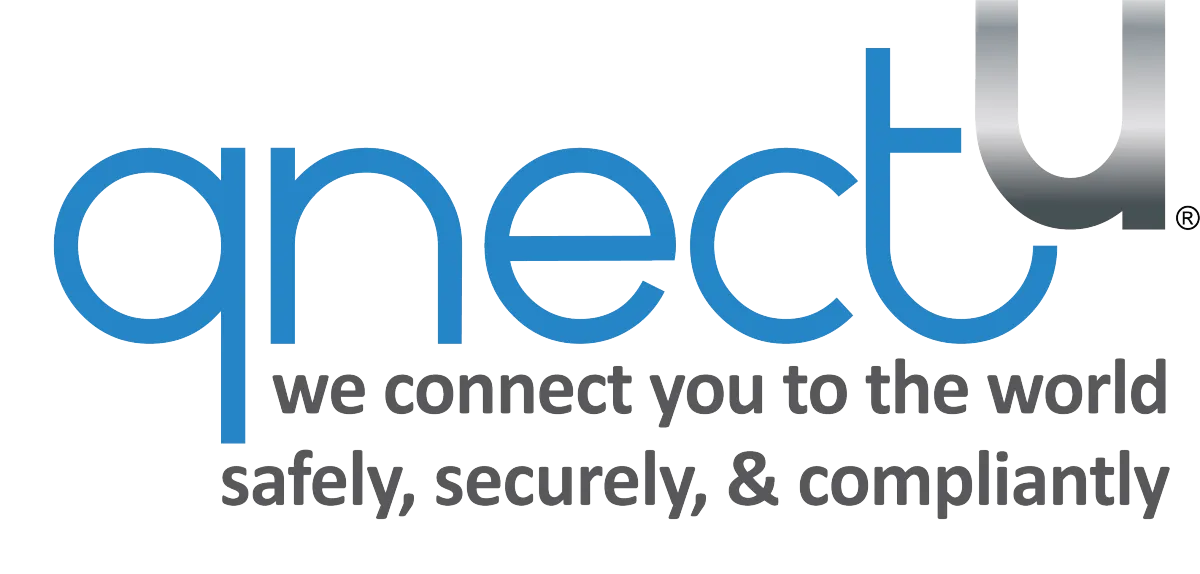News

Vendor Risks: Are Your Business Partners Leaving You Exposed?
Your business runs on partnerships. Whether it's suppliers, software providers, or outsourced IT support, third-party vendors are critical to keeping things running smoothly. But what happens when your trusted partners unknowingly introduce a cybersecurity threat that puts everything you've built at risk?
One weak link in your supply chain can expose your business to breaches, financial loss, and even legal liabilities. Worse, your customers won’t care who is at fault—they’ll hold you responsible.
So, how do you prevent a vendor's security failure from becoming your worst nightmare? Let’s break down the risks and the strategies you need to stay ahead.
The Hidden Threats Lurking in Your Vendor Relationships
Even if your internal security is locked down, your third-party partners may not hold themselves to the same standard. Here are the most common ways your vendors could be putting you in danger:
1. Access to Your Sensitive Data
Your business partners may need access to customer records, financial data, or proprietary information to do their jobs. But if their security is weak, your data is just waiting to be compromised. A breach on their end could leave you exposed, and you might not even know about it until it's too late.
2. Vendors with Poor Cybersecurity Hygiene
When you bring on a vendor, you’re inheriting their active security risks. If they don’t have strict protocols in place, you’re taking on their risk without even realizing it. Weak passwords, outdated systems, and careless security policies create an easy backdoor into your business.
3. Compromised Software & Hardware
Many businesses rely on third-party software to streamline operations. But if that software has security vulnerabilities—or worse, hidden malware—you’re inviting cybercriminals in through the front door.
4. Data Storage Risks
Storing data in third-party cloud environments can improve efficiency, but it also introduces new risks. If your cloud provider experiences a breach, your customer data could be exposed, and you’ll be the one answering for it.
How to Take Control & Minimize Third-Party Risks
The good news? You don’t have to sit back and hope your vendors have their act together. Here’s how to proactively protect your business:
1. Vet Your Vendors—Before You Commit
Don’t assume a vendor is secure just because they say they are. Conduct thorough background checks, review their security policies, and ask for industry-standard certifications before signing any agreements.
2. Set Clear Security Expectations
Every vendor contract should include specific security requirements, including data protection standards, compliance mandates, and breach notification procedures. If they can’t meet your standards, they’re not the right partner.
3. Keep Open Communication
A strong partnership means transparency. Require vendors to notify you immediately of any security incidents and regularly update you on their evolving security measures.
4. Ongoing Security Monitoring
Cybersecurity isn’t a set-it-and-forget-it deal. Conduct routine security assessments, penetration tests, and vulnerability scans to ensure your vendors aren’t unknowingly exposing your business.
5. Have a Crisis Plan—Before You Need It
Even with the best precautions, incidents can still happen. A detailed incident response plan should outline who does what, when, and how in case of a breach. Run regular drills so your team knows exactly how to react.
Don’t Let a Vendor’s Mistake Take Down Your Business
Your business’s security is only as strong as its weakest link. If your vendors aren’t taking cybersecurity as seriously as you are, you’re playing a dangerous game.
At qnectU, we help business owners take back control of their security by identifying and mitigating third-party risks before they become a problem.
Let’s fortify your business together. Contact us at 801-572-4000 or click here to schedule a quick call today and get a comprehensive third-party risk assessment—because your security should never be left to chance.
FREE GUIDE
Discover The Truth Nobody Is Telling You About IT Security And The New, Critical Threats That WILL Put Your Business At Risk

Answers To Common Questions
Frequently Asked Questions
Do you offer access to senior IT consultants or a vCSO for oversight and guidance?
Yes, we offer access to senior IT consultants and provide vCSO(Virtual Chief Security Officer) as a service for our clients. Our vCSO service provides your organization with expert leadership and strategic direction tailored to your unique cybersecurity and legal compliance needs. We are here to help you navigate the complexities of cybersecurity and ensure that your security posture is robust, compliant, and capable of addressing evolving cyber threats. Book a call today to get expert help with your company’s cybersecurity and compliance.
Do you have a high level of confidence in your security posture? If so, can you explain why?
We have a high level of confidence in the security posture of our company and our clients. Our security stack includes several components to ensure strong and resilient cybersecurity measures. We provide comprehensive risk management, regular audits and assessments, advanced security technologies, employee training and awareness, and incident response planning. Our systems and solutions follow established industry standards and best practices to keep your company safe and your data secure. Since every company has different risks depending on the data, systems, utilization, and more, we can work with your team to develop a robust security plan and implement the proper measures as needed. Reach out today to strengthen your company’s security posture!
Do you have a Disaster Recovery (DR) plan? If so, what’s in place? Is it tested regularly?
We provide robust Disaster Recovery (DR) plans, covering preventative, detective, and corrective measures. Our DR strategies are tailored to each client’s specific needs and are designed to ensure rapid recovery and continuity of operations in the event of any disaster. These plans are regularly reviewed and tested to guarantee they function effectively and meet the highest standards of resilience and reliability. And if a disaster were to occur outside of regular business hours, we have you covered! At qnectU, we have a response time of mere minutes for emergency after-hours calls, ensuring a rapid response to implement your Disaster Recovery plan. Book a call today to protect your company in the event of a disaster.
Do you perform regular risk assessments?
Here at qnectU, we conduct regular risk assessments as a core part of our risk management strategy. Our process is comprehensive, involving identification, categorization, and response planning for potential security risks, including technical vulnerabilities, access controls, and more. These assessments help us understand, control, and mitigate all forms of cyber risk, ensuring that our security measures are effective and up-to-date. But most importantly, we provide continual risk assessments at pre-determined intervals based on your company’s risk level. This ensures that issues are corrected, new risks are identified, and compliance is properly documented. Want to see how our in-depth business risk assessments work? Book a consultation today to get an in-depth risk assessment of your company’s current network security.
Do you follow proven change management principles?
We are committed to following proven change management principles. We understand the importance of structured and systematic processes in implementing changes that affect cybersecurity protocols and IT environments. Our approach is based on industry-recognized frameworks and methodologies that ensure changes are managed effectively, focusing on minimizing risks, enhancing security posture, and achieving strategic objectives.
Do you address all my compliance needs, including HIPAA?
We specialize in Compliance as a Service (CaaS), and our program is designed to meet a wide range of regulatory requirements to ensure that your business adheres to the highest standards of compliance. We demonstrate our compliance through detailed assessments, documentation, and third-party audits. Our expertise and ongoing support can give you confidence that your company’s sensitive information is managed securely and in full compliance with all regulations.
Is third-party auditing provided to ensure cybersecurity and compliance requirements are being met?
In today’s world a business can easily be compromised via a “supply chain hack.” There have been several instances where the IT company has exposed all of their clients to hacking due to their own lack of cybersecurity measures. In order to prevent this within our own company, we work closely with a third party for comprehensive auditing services to ensure that all cybersecurity and compliance requirements are met. Our rigorous audit process involves a thorough examination of our systems and practices against established industry standards and best practices. This collaboration provides an objective perspective and deep expertise to identify any potential vulnerabilities, ensuring that our cybersecurity measures are robust, up-to-date, and in full compliance with regulatory demands.
What is Compliance as a Service (Caas)?
Compliance as a Service (Caas) means that our experts will give you specialized help in handling all the rules and regulations your business needs to follow. We do this by providing expert guidance to help you determine what rules apply to your business and how to follow them. All while giving ongoing support to monitor your compliance status and updates in regulations. This may also include any advanced tools to help manage compliance tasks and risk management surrounding compliance. CaaS takes the hassle out of compliance so you can focus on running your business with confidence.
Who is Greg Mauer?
Gregory Mauer is the founder and CEO of our company, a best-selling author, speaker, and a cybersecurity & compliance expert. He has been on stage with the likes of the “Nice Shark”, Robert Herjavec, Siri co-founder Adam Cheyer, and business coach and author Mike Michalowicz.
Answers To Common Questions
Frequently Asked Questions
Do you offer access to senior IT consultants or a vCSO for oversight and guidance?
Yes, we offer access to senior IT consultants and provide vCSO(Virtual Chief Security Officer) as a service for our clients. Our vCSO service provides your organization with expert leadership and strategic direction tailored to your unique cybersecurity and legal compliance needs. We are here to help you navigate the complexities of cybersecurity and ensure that your security posture is robust, compliant, and capable of addressing evolving cyber threats. Book a call today to get expert help with your company’s cybersecurity and compliance.
Do you have a high level of confidence in your security posture? If so, can you explain why?
We have a high level of confidence in the security posture of our company and our clients. Our security stack includes several components to ensure strong and resilient cybersecurity measures. We provide comprehensive risk management, regular audits and assessments, advanced security technologies, employee training and awareness, and incident response planning. Our systems and solutions follow established industry standards and best practices to keep your company safe and your data secure. Since every company has different risks depending on the data, systems, utilization, and more, we can work with your team to develop a robust security plan and implement the proper measures as needed. Reach out today to strengthen your company’s security posture!
Do you have a Disaster Recovery (DR) plan? If so, what’s in place? Is it tested regularly?
We provide robust Disaster Recovery (DR) plans, covering preventative, detective, and corrective measures. Our DR strategies are tailored to each client’s specific needs and are designed to ensure rapid recovery and continuity of operations in the event of any disaster. These plans are regularly reviewed and tested to guarantee they function effectively and meet the highest standards of resilience and reliability. And if a disaster were to occur outside of regular business hours, we have you covered! At qnectU, we have a response time of mere minutes for emergency after-hours calls, ensuring a rapid response to implement your Disaster Recovery plan. Book a call today to protect your company in the event of a disaster.
Do you perform regular risk assessments?
Here at qnectU, we conduct regular risk assessments as a core part of our risk management strategy. Our process is comprehensive, involving identification, categorization, and response planning for potential security risks, including technical vulnerabilities, access controls, and more. These assessments help us understand, control, and mitigate all forms of cyber risk, ensuring that our security measures are effective and up-to-date. But most importantly, we provide continual risk assessments at pre-determined intervals based on your company’s risk level. This ensures that issues are corrected, new risks are identified, and compliance is properly documented. Want to see how our in-depth business risk assessments work? Book a consultation today to get an in-depth risk assessment of your company’s current network security.
Do you follow proven change management principles?
We are committed to following proven change management principles. We understand the importance of structured and systematic processes in implementing changes that affect cybersecurity protocols and IT environments. Our approach is based on industry-recognized frameworks and methodologies that ensure changes are managed effectively, focusing on minimizing risks, enhancing security posture, and achieving strategic objectives.
Do you address all my compliance needs, including HIPAA?
We specialize in Compliance as a Service (CaaS), and our program is designed to meet a wide range of regulatory requirements to ensure that your business adheres to the highest standards of compliance. We demonstrate our compliance through detailed assessments, documentation, and third-party audits. Our expertise and ongoing support can give you confidence that your company’s sensitive information is managed securely and in full compliance with all regulations.
Is third-party auditing provided to ensure cybersecurity and compliance requirements are being met?
In today’s world a business can easily be compromised via a “supply chain hack.” There have been several instances where the IT company has exposed all of their clients to hacking due to their own lack of cybersecurity measures. In order to prevent this within our own company, we work closely with a third party for comprehensive auditing services to ensure that all cybersecurity and compliance requirements are met. Our rigorous audit process involves a thorough examination of our systems and practices against established industry standards and best practices. This collaboration provides an objective perspective and deep expertise to identify any potential vulnerabilities, ensuring that our cybersecurity measures are robust, up-to-date, and in full compliance with regulatory demands.
What is Compliance as a Service (Caas)?
Compliance as a Service (Caas) means that our experts will give you specialized help in handling all the rules and regulations your business needs to follow. We do this by providing expert guidance to help you determine what rules apply to your business and how to follow them. All while giving ongoing support to monitor your compliance status and updates in regulations. This may also include any advanced tools to help manage compliance tasks and risk management surrounding compliance. CaaS takes the hassle out of compliance so you can focus on running your business with confidence.
Who is Greg Mauer?
Gregory Mauer is the founder and CEO of our company, a best-selling author, speaker, and a cybersecurity & compliance expert. He has been on stage with the likes of the “Nice Shark”, Robert Herjavec, Siri co-founder Adam Cheyer, and business coach and author Mike Michalowicz.





